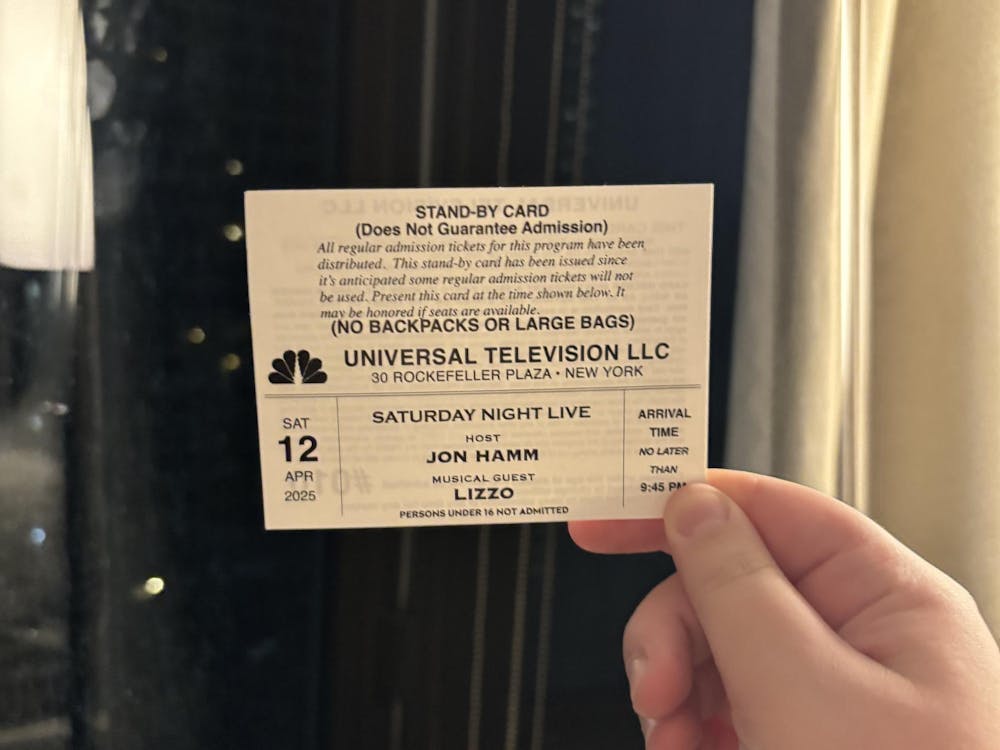"Blonde," Frank Ocean's triumphant sophomore studio album, is the soundtrack for fall, when the weather is pleasantly cooler than the blistering summers and the leaves change color. It's a beautiful period where it's almost impossible not to walk outside in a good mood. Ocean's sound is similarly pleasing, a gorgeous mix of acoustic pop and avant-garde soul with glimmers of electronic R&B.
But the yellowing leaves are a reminder of what's to come: harsh colds, bracing winds and barren trees. Thinking about this impending desolate season is almost enough to diminish the current post-summer pleasures. Feelings of joy clash with premonitions of pain and good will soon be replaced with bad.
This is an idea that's difficult to elaborate upon, but it's one that Ocean captures well. His lyrics--which are arguably the staple of his musicianship--tinge his songs with sadness. They tell stories of transformation: growing older, growing wiser, finding love, and losing it.
For example, standout track "Ivy" finds Ocean sighing, "I thought that I was dreaming when you said you loved me," before adding, "Ooh, I could hate you now/It's quite alright to hate me now/Cause we both know that deep down the feeling's still good."
What starts out as a pretty love song morphs into a sad reflection of the end of a relationship, and the bubbly guitars backing Ocean suddenly don't seem so charming. When he belts out, "We ain't those kids no more/We'll never be those kids again," it's as if he knows that growing older means losing a part of yourself. He also understands that you'll miss it.
"Self Control" is a nearly perfect iteration on the soft pop formula that Justin Bieber made popular with "Love Yourself," but tells a much more devastating story about a man desperately wanting one more night with his ex: "Keep a place for me/I'll sleep between y'all, it's no thang."
Everything has changed since Ocean released his widely acclaimed debut album "channel ORANGE" in 2012. That record was a masterful reinvention of Stevie Wonder-esque psychedelic soul. Ocean, who was 24 at the time, laced the album with youthful energy, from the churning bedroom jam "Thinkin' Bout You" to the monolithic dance opus "Pyramids."
"Blonde," on the other hand, is stripped-down, guitar-heavy, mainly percussion-less and full of subversions to pop formulas that make it accessible to everyone without sounding redundant or unoriginal. Ocean was bold enough to stray from the formula that brought him success.
To make things even more interesting, few songs stay the same from start to end. Album opener "Nikes" begins as a dark R&B jam riddled with AutoTune before transforming into quiet acoustic guitar accompanying Ocean's raw vocals. "Siegfried" opens like a jazz-rock odyssey but ends with some stunning orchestration and some spoken word poetry. And the album's dazzling centerpiece, "Nights," is a veritable "Bohemian Rhapsody" of changes, all representing shifts between day and night.
It's a testament to the prowess of Frank Ocean that he can utilize both the lyrics and instrumentation to create an album that is a full experience. If "channel ORANGE" was evidence that Ocean can produce greatness, "Blonde" proves his first success was no fluke. Over the course of two albums, he's gone from a young R&B singer with the potential for success to one of the most powerful and talented artists of his generation. Talk about a transformation.




